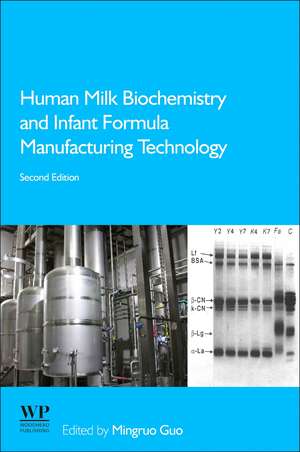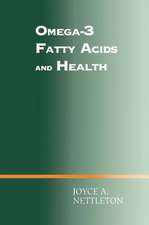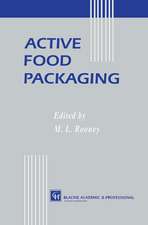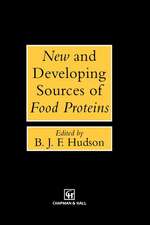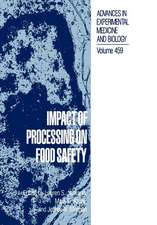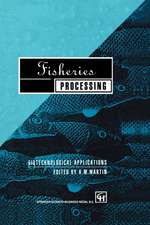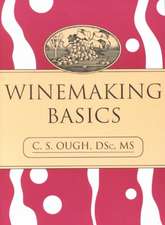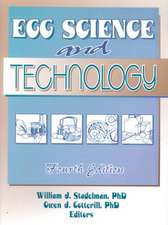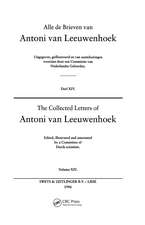Human Milk Biochemistry and Infant Formula Manufacturing Technology
Editat de Mingruo Guoen Limba Engleză Paperback – 15 sep 2020
This book is sure to be a welcome resource for professionals in the food and infant formula industry, academics and graduate students in fields like nutrition, food sciences, or nursing, nutritionists and health professionals, government officials working in relevant departments, and finally, anyone interested in human milk and infant formula.
- Reviews both human milk biochemistry and infant formula processing technology for broad coverage
- Features a comprehensive review on the human milk protein profile using proteomics technology
- Contains information on infant formula processing technology
- Provides guidelines on infant formula clinical trials and related topics
Preț: 1043.18 lei
Preț vechi: 1706.64 lei
-39% Nou
Puncte Express: 1565
Preț estimativ în valută:
199.61€ • 208.97$ • 165.17£
199.61€ • 208.97$ • 165.17£
Carte tipărită la comandă
Livrare economică 31 martie-14 aprilie
Preluare comenzi: 021 569.72.76
Specificații
ISBN-13: 9780081028988
ISBN-10: 0081028989
Pagini: 422
Dimensiuni: 152 x 229 mm
Greutate: 0.56 kg
Ediția:2
Editura: ELSEVIER SCIENCE
ISBN-10: 0081028989
Pagini: 422
Dimensiuni: 152 x 229 mm
Greutate: 0.56 kg
Ediția:2
Editura: ELSEVIER SCIENCE
Cuprins
1. Introduction: Trends and issues in breastfeeding and the use of infant formula2. Chemical composition of human milk3. Bioactive components in human milk4. Human milk proteomics and lipidomics and human milk microbiome5. Human milk banking6. Formulation guidelines for infant formula7. Ingredients selection for infant formula8. Processing technology for infant formula9. Component interactions and processing damage during the manufacture of infant formula10. Infant formula quality control11. Infant formula product regulation12. Infant formula analyses13. Infant formula and allergy
